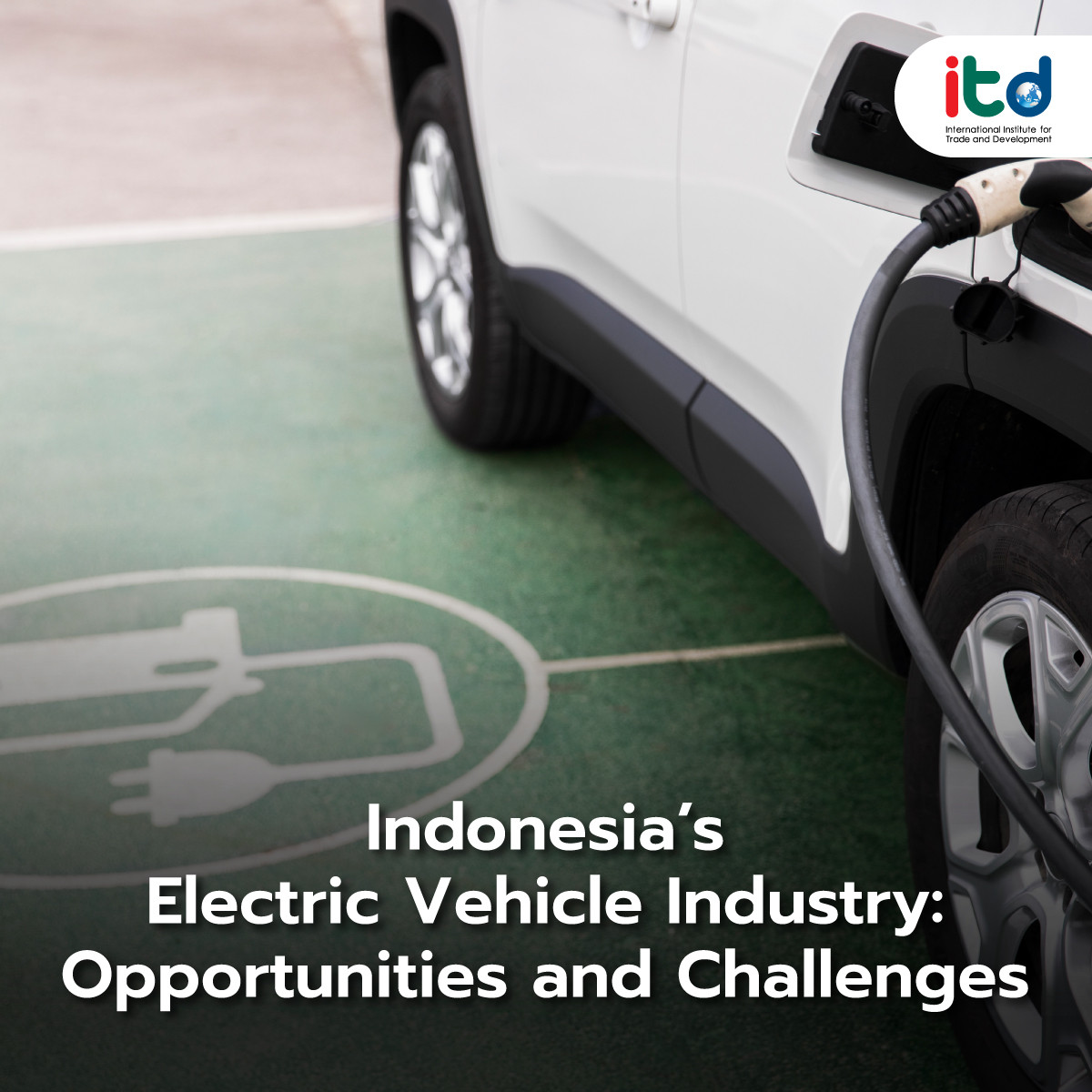About Documents
Electric vehicles (EV) are becoming a major trend in the global automotive industry. Indonesia has shown strong commitment to entering this industry, leveraging its abundant resources and government support. This has positioned Indonesia as one of the most promising countries in the EV industry within the ASEAN region.
In 2024, the EV industry in Indonesia is experiencing rapid growth, with significant increases in economic value. According to recent data, the market value of electric vehicles in Indonesia is expected to reach USD 1.7 billion in 2024, up from USD 533 million in 2020, with an average annual growth rate of approximately 25% (CAGR). Coupled with Indonesia’s large market of 275 million people, an economy growing at a rate of 5% in 2023, and expected to expand by 5% in 2024, the country presents a strong potential in the EV sector.
Indonesia possesses key natural resources crucial for the production of lithium-ion batteries, the core of electric vehicles. Its abundant nickel reserves have made Indonesia a significant global producer of batteries. Currently, Indonesia accounts for over 30% of global nickel production, attracting foreign companies like Tesla and LG Chem to invest in building battery manufacturing plants in the country.
The Indonesian government has continuously implemented policies to support the development of the EV industry. These include setting a target to produce 600,000 electric vehicles per year domestically by 2030, and offering import tax exemptions and product tax incentives to EV manufacturers and consumers. Additionally, the government has planned to build infrastructure such as charging stations across the country, with more than 31,000 stations expected to be operational by 2025.
Moreover, the government has set a goal to achieve net-zero greenhouse gas emissions by 2050, with the promotion of electric vehicle usage being part of this plan. These policies have provided assurance to foreign investors and manufacturers to invest in Indonesia.
Compared to other ASEAN countries, Indonesia is considered one of the most potential countries for developing the EV industry. While Thailand and Malaysia have also advanced in this area, they lack the crucial natural resources needed for battery production, giving Indonesia a resource-based advantage.
Thailand has a long history of automotive industry development and has established a robust vehicle manufacturing infrastructure, which Indonesia still needs to further develop. However, with government support and foreign investment, Indonesia has the potential to become a manufacturing hub for EV in the ASEAN region in the future.
The EV industry in Indonesia is likely to experience rapid growth in the near future. Given the above factors, interested investors should consider the possibilities in battery manufacturing, infrastructure development, and domestic electric vehicle production. Government support and available natural resources make Indonesia an attractive country for investment in this industry.
However, investors should also consider potential challenges, such as infrastructure development and competition with other countries in the region. Despite these challenges, the vast opportunities make Indonesia a promising market for those looking to enter the EV industry in ASEAN.
Indonesia’s EV industry is on the rise, with ample government support and abundant resources, positioning the country to potentially lead the EV industry in the ASEAN region. Investors seeking opportunities should view Indonesia as a key country to watch for future investments in the EV sector.
Author:
Ms. Namphueng Tassanaipitukkul
Senior Researcher
International Institute for Trade and Development (Public Organization)
www.itd.or.th
Publication: Bangkok BIZ Newspaper
Section: First Section/World Beat
Volume: 37 Issue:12706
Date: Wednesday, Aug. 14, 2024
Page: 8 (bottom)
Column: “Asean Insight”






